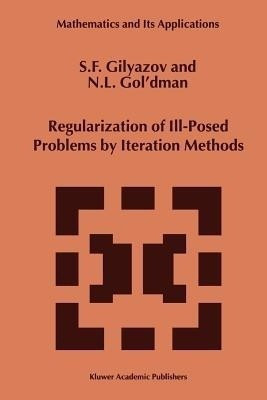Regularization of Ill-Posed Problems by Iteration Methods(English, Paperback, Gilyazov S.F.)
Quick Overview
Product Price Comparison
Iteration regularization, i.e., utilization of iteration methods of any form for the stable approximate solution of ill-posed problems, is one of the most important but still insufficiently developed topics of the new theory of ill-posed problems. In this monograph, a general approach to the justification of iteration regulari- zation algorithms is developed, which allows us to consider linear and nonlinear methods from unified positions. Regularization algorithms are the 'classical' iterative methods (steepest descent methods, conjugate direction methods, gradient projection methods, etc.) complemented by the stopping rule depending on level of errors in input data. They are investigated for solving linear and nonlinear operator equations in Hilbert spaces. Great attention is given to the choice of iteration index as the regularization parameter and to estimates of errors of approximate solutions. Stabilizing properties such as smoothness and shape constraints imposed on the solution are used. On the basis of these investigations, we propose and establish efficient regularization algorithms for stable numerical solution of a wide class of ill-posed problems. In particular, descriptive regularization algorithms, utilizing a priori information about the qualitative behavior of the sought solution and ensuring a substantial saving in computational costs, are considered for model and applied problems in nonlinear thermophysics. The results of calculations for important applications in various technical fields (a continuous casting, the treatment of materials and perfection of heat-protective systems using laser and composite technologies) are given.


